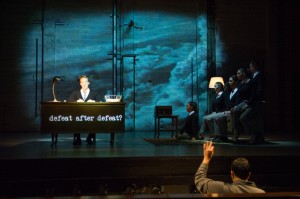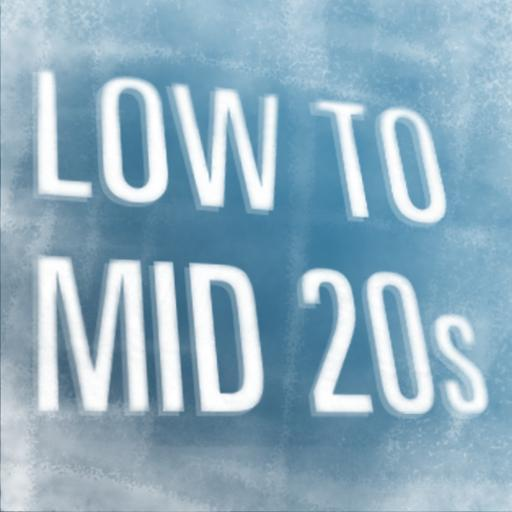The title of Skylight Music Theatre’s new play, “Hydrogen Jukebox” does not originate from an element off the periodic table with a hidden musical talent. It comes from the verse, “…listening to the crack of doom on the hydrogen jukebox,” in “Howl,” a poem written by the late iconic beat poet, Allen Ginsberg.

Directed by Ted Huffman and Zack Winokur, Skylight Music Theatre’s production of “Hyrdogen Jukebox” features the music from celebrated composer Philip Glass and Ginsberg’s poetry. It will run until March 30.
Based on the collaboration of Glass and Ginsberg, the play presents a theatrical America from the 1950s to the ‘80s. Actors wearing ’50s attire sing a series of Ginsberg poems accompanied with choreographed dance routines. Ginsberg’s poetry from this period displays his political thoughts about social issues regarding the Vietnam War, the sexual revolution, the anti-war movement, Eastern philosophy and harmful effects on the environment.
One aspect that makes the play challenging to follow is its structure. It lacks a beginning, middle and end. Yes, the production includes Ginsberg’s poetry, and it can be argued that his work reflects his life, in turn making it a story. However, without dialogue and interaction among the performers, it does not come across as a coherent story. It feels more like many different experiences, thoughts and emotions that do not directly relate to each other. The flow between numbers do not seem to connect either.
However, establishing knowledge about Ginsberg’s life and the meaning behind his poetry could make viewing “Hydrogen Jukebox” more relatable. This limitation makes understanding dense poetry sung in opera more difficult and the words hard to follow. The words projected on the walls for guidance do help, but cannot not clarify any meanings behind the poetry.
The highlight of the performance is the artistic visuals provided by artistic director Viswa Subbaraman. Despite the absence of props and sets commonly seen in a theater production, “Hydrogen Jukebox” makes a statement with few objects onstage. The lack of scene changers and costumes adds emphasis to Ginsberg’s poetic themes and allows for artistic freedom. A barren stage with an open back wall transformes an empty space into an artistically-lit projector. Throughout the performance, the actors share the space with the projected movement of lines and boxes. They outline shadows and work well with the actors’ choreography, as well as the text of Ginsberg’s poems.
Projecting the text is not only an eye-pleasing artistic strategy, but also an interactive way to help the audience comprehend and digest Ginsberg’s poetry. It allows audience members to read along with the performers and better engage with the play.
In addition to lights and other projected imagery, the artistic scheme of the production also incorporates film. Visuals of heavy downpouring rain, a picturesque starry night and the footage of the atomic bomb being released help create a tangible scene and set the tone for the poem.
“Hydrogen Jukebox” derives from Ginsberg’s poetry and requires outside knowledge to fully appreciate. Otherwise, viewers may become lost in the words and not completely understand the meaning or the motive of the play.

